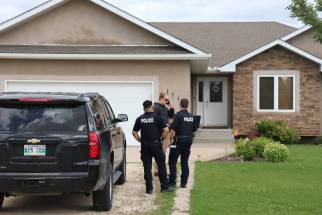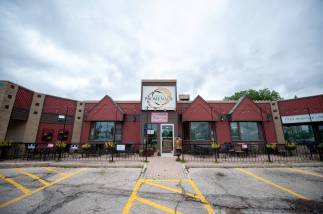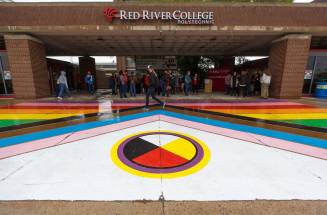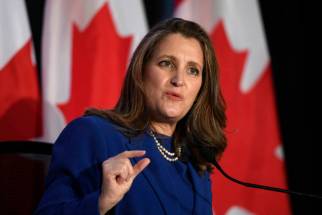Broken political discourse on public display
Read this article for free:
or
Already have an account? Log in here »
To continue reading, please subscribe:
Monthly Digital Subscription
$0 for the first 4 weeks*
- Enjoy unlimited reading on winnipegfreepress.com
- Read the E-Edition, our digital replica newspaper
- Access News Break, our award-winning app
- Play interactive puzzles
*No charge for 4 weeks then price increases to the regular rate of $19.00 plus GST every four weeks. Offer available to new and qualified returning subscribers only. Cancel any time.
Monthly Digital Subscription
$4.75/week*
- Enjoy unlimited reading on winnipegfreepress.com
- Read the E-Edition, our digital replica newspaper
- Access News Break, our award-winning app
- Play interactive puzzles
*Billed as $19 plus GST every four weeks. Cancel any time.
To continue reading, please subscribe:
Add Free Press access to your Brandon Sun subscription for only an additional
$1 for the first 4 weeks*
*Your next subscription payment will increase by $1.00 and you will be charged $16.99 plus GST for four weeks. After four weeks, your payment will increase to $23.99 plus GST every four weeks.
Read unlimited articles for free today:
or
Already have an account? Log in here »
Hey there, time traveller!
This article was published 29/08/2022 (1196 days ago), so information in it may no longer be current.
The directness, proximity and coarsely delivered malevolence of the encounter make the recent elevator-lobby harassment of Deputy Prime Minister Chrystia Freeland disturbing, but perhaps what’s more disquieting about the profane outburst is that events of this sort have become almost commonplace in a society whose grasp on civility and common courtesy seems quickly to be slipping away.
The incident occurred last Friday during a visit by Ms. Freeland to city hall in Grande Prairie, Alta. A widely circulated video clip shows a very large man calling the deputy PM by her first name as she prepares to enter an elevator; as she steps toward the just-opened door, the man moves quickly across the lobby in pursuit, shouting profanity, calling her a traitor and telling her to get out of Alberta — which, perhaps ironically, actually happens to be her home province.
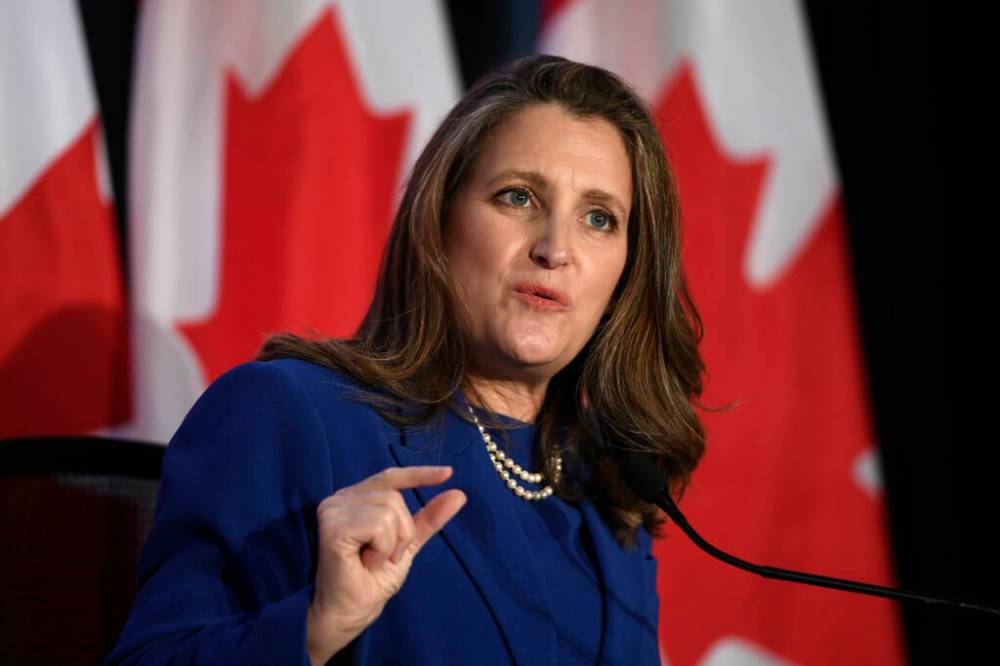
The man, clad in jeans and a white tank top, does not enter the elevator car; rather, he spews his venom from just outside its open door. The 14-second clip ends when someone — either in the elevator or in the assailant’s company — says, “You don’t belong here.”
While no actual (physical) violence occurred, the manner in which the politician was followed and accosted is the latest illustration of how Canada’s traditionally laissez-faire approach to security for public figures is at odds with the potential dangers posed by fringe elements in an increasingly polarized and internet-overheated political climate.
For much longer than was in any way appropriate to the facts in evidence, Canadians clung to the sepia-toned notion that ours is a “polite” nation in which bickering neighbours and political rivals treat each other with deference, grace and mutual respect. Insults and raised voices were the purview of the so-called “ugly American,” whose swagger and belligerence were antithetical to the values that underpin this country’s ongoing public conversation.
Well, that was then (and really, was it?), and this is now — a present in which some politicians here are as inclined as their counterparts elsewhere to stoke and then capitalize on resentments based largely in the converging misinformed grievances that have come to define the more extreme elements of public discourse in the internet age.

Former U.S. president Donald Trump is the poster boy for what columnist Max Fawcett of Canada’s “National Observer” website astutely described as “rage farming” — the strategy of seeding, cultivating and harvesting public anger with rhetoric that is, more often than not, unmoored from fact but is aligned with the unhinged “truths” that echo and amplify in far-right internet enclaves.
The crescendo (so far) of America’s boiled-over discourse was the Jan. 6 insurrection at the U.S. Capitol; that it might soon be surpassed in terms of magnitude and consequence is evidenced by recent statements by Mr. Trump and select acolytes that a criminal prosecution of the former president based on evidence gathered during the raid at his Mar-a-Lago country-club estate will lead to widespread rioting in America’s streets.
In (not much) kinder, gentler Canada, online outrage and widely shared misinformation were the twin engines of the so-called “freedom convoy” that paralyzed downtown Ottawa and several other locations last February. The trucks are gone, but the hate contagion continues to percolate, occasionally driving the likes of Ms. Freeland’s assailant into public places in pursuit of reprisal and infamy and/or martyrdom.
It’s time for Canadians to accept that we cannot claim hospitable and benign — if, indeed, we ever could — as defining descriptives. A good way to start would be ensuring our elected officials are properly protected when they perform their most public duties.



